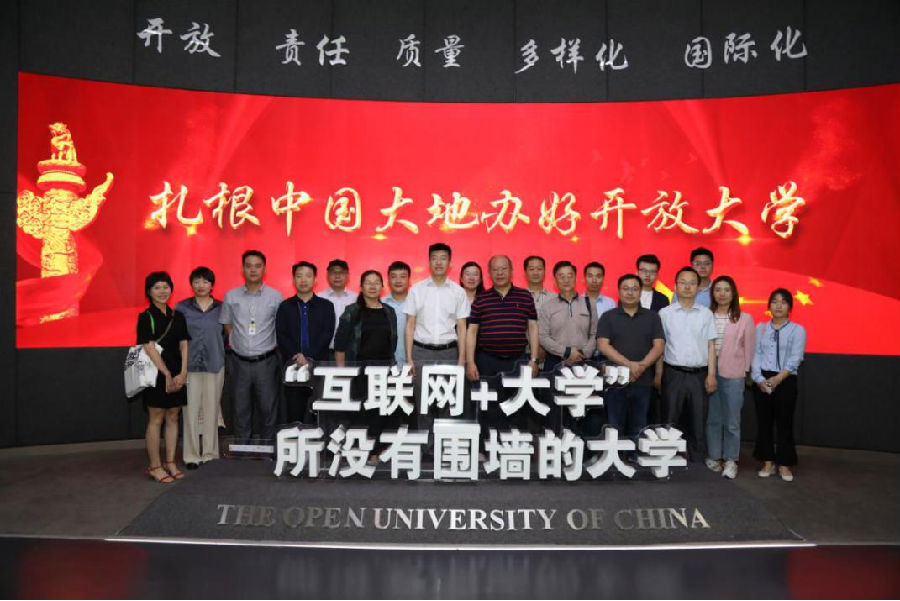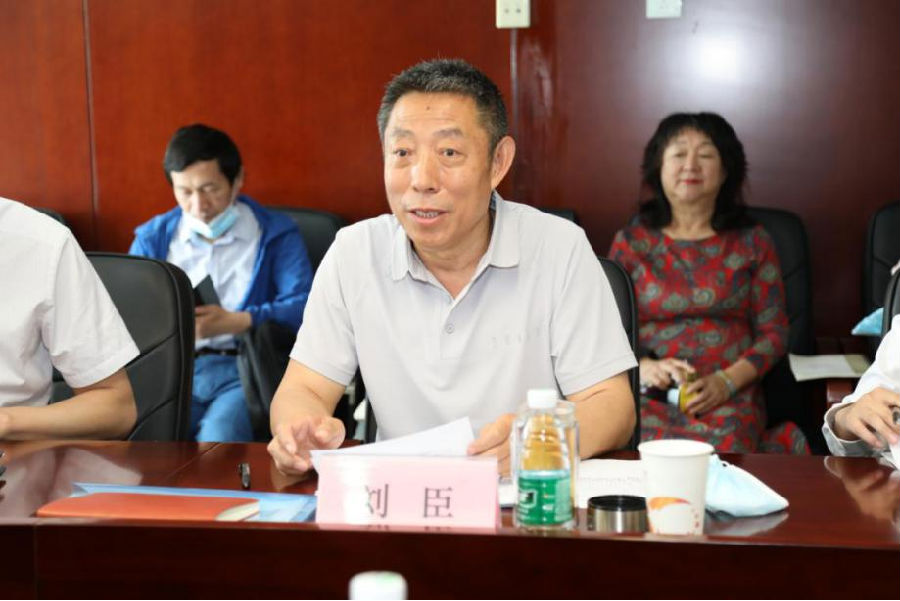 On 25 May 2021, the Open University of China (OUC) held a seminar titled "Providing ‘Smart' Assistance to Older Adults".
On 25 May 2021, the Open University of China (OUC) held a seminar titled "Providing ‘Smart' Assistance to Older Adults".

The event attracted nearly 30 attendees, including experts from the Ministry of Education (MOE), the China National Committee on Aging (CNCA), Senior Care of the Beijing Academy of Science and Technology (BJAST), the Beijing See-young Social-work Service Centre, Alibaba, the Ant Group, the OUC, Tianjin Open University (Tianjin OU) and Hunan Open University (Hunan OU). Liu Chen, deputy secretary of the OUC Party Committee, and president of the OUC University for Older Adults, delivered a speech.

He pointed out that, according to the seventh national census, those 60 and older in China now number 264 million, accounting for 18.70% of the population. The General Office of China’s State Council has issued a plan for dealing with the "digital divide" facing the elderly. The OUC, as a major platform of lifelong education, has been working to expand education of older adults, with education in the use of digital technologies at the top of its agenda in 2021, along with the provision of digital services.

The experts attending the meeting discussed the OUC's plans to provide older adults with digital education and services.
Fan Hua, a deputy director of the Urban and Rural Social-education Section of the MOE Division of Vocational and Adult Education, stated that providing digital assistance to the elderly is an important part of their education, and gave five suggestions for the construction of course resources in terms of their collection, construction, management, application and quality. Yue Linlin, deputy director of the CNCA Publicity Department, said that resources should be targeted based on research into the actual needs of older adults, while Cui Weiwei, director of the Scientific Research Department of BJAST Senior Care, emphasised the importance of implementation and promotion for people with low levels of digital literacy. Sui Mingzhe, director of the Public Welfare Centre of the Beijing See-young Social-work Service Centre, shared his experiences constructing and using resources, and advised collaborating with volunteer and social-service organisations, making use of a range of media, including short videos, simulating teaching scenarios, and building modular resources. Zhang Youhong of Alibaba's Customer-experience Unit and Pan Feifei, brand manager of Ant Group, stated that courses to teach older adults the use of digital technologies should be easy to understand, and offered both online and offline. They also suggested cooperation be carried out with various institutions in terms of teaching and of sharing resources. Liu Zhigang, vice president of Tianjin OU, expressed a desire for the OUC to play an important role in establishing standards, coordinating system-wide efforts, and making use of the wide reach of its branches to promote comprehensive development. Ou Jun, vice president of Hunan OU, suggested the OUC focus on bringing offline services into communities, and start by providing simple services and dealing with common problems before offering in-depth training. He also proposed improvements to textbook design and training methods.
Branch leaders discussed construction of resources and development of education in digital literacy for older adults at their branches. They agreed that sound project design, and construction of course resources to avoid redundancy, are essential. They also agreed to establish a mechanism for collaboration in resource construction and sharing, enabling the OUC and other stakeholders to concentrate their efforts on producing high-quality products.
By Jiang Haiyan & Qi Shuang, OUC